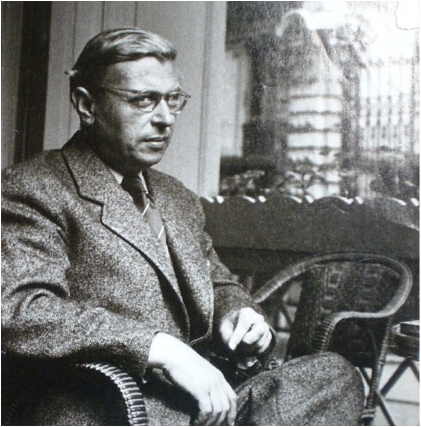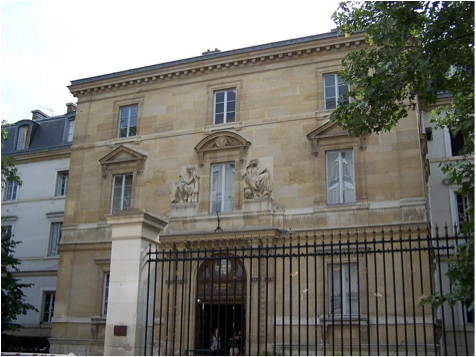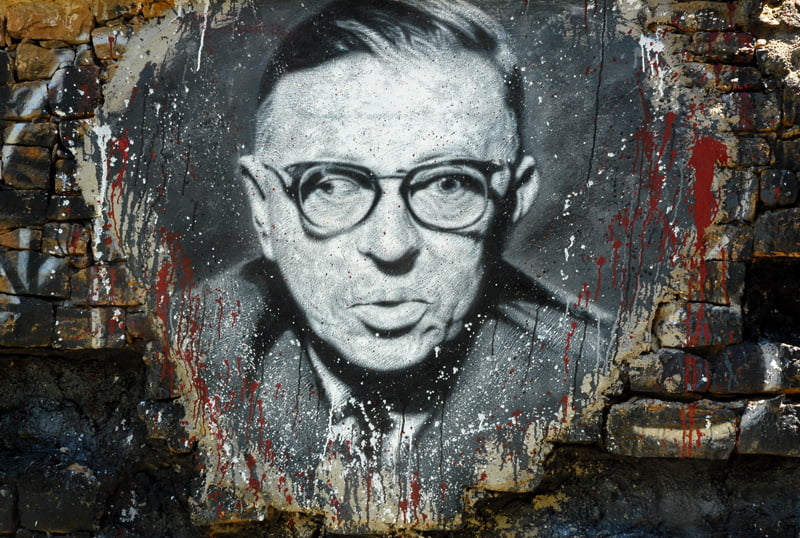Your pocket-sized Guide to… French philosophy: Jean-Paul Sartre
How well do you know your French philosophers? Test yourself and learn something new with our pocket-sized guide. You’ll be sure to impress at your next dinner party…
Jean-Paul Sartre was a French existentialist philosopher who believed that each individual has the freedom to change things and make a real difference.
French upbringing
- Born on 21 June 1905 in Paris.
- Educated at Lycée Henri IV and École Normale Supérieure¹.
- Lifelong companion of fellow French philosopher Simone De Beauvoir.
- Was offered the Nobel Peace Prize for Literature in 1964 but refused to accept it because he believed that “a writer should not allow himself to be turned into an institution”.²
- Died on April 15 1980 in Paris from an oedema of the lung.¹
L’existence précède l’essence
Sartre believed that “existence precedes essence”.³ This means that humans are not born with a purpose; we find our own purpose during our life. Therefore, our existence comes before our essence.
Sartre argued that all things except humans are designed for a purpose, and he used the analogy of a paper knife to illustrate this argument. A paper knife is created for a particular reason: to cut paper. Therefore the qualities of a paper knife – such as the sharpness and size of the blade – are appropriate for its purpose.
Sartre’s atheist views meant that he did not believe that there was a God who created a purpose for humans, and therefore we have no set reason for being, for “the destiny of man is placed within himself”.
La liberté
As a result of being able to choose our own purpose, we have a large amount of freedom. Sartre believed that it is up to us to decide how to use this freedom and that we must be responsible in how we use it. We are responsible for the way things are at any given moment, because we have the freedom to change things.
Sartre believed there is no such thing as human nature; each person is individual, and therefore one cannot blame human nature for their flaws. Each individual must take responsibility for him or herself.
This idea of being able to use freedom to make a difference influenced the Paris riots of May 1968 – which Sartre supported – where students protested against the conservative French government of Charles de Gaulle to gain greater personal freedom.
Do you agree with Sartre’s view that “existence precedes essence”? How are you going to use your freedom to make a difference? Your voice is missing from the conversation below!
Read more from our pocket-sized guide to French philosophy:1. Jean-Paul Sartre (this page)
2. Simone de Beauvoir
3. René Descartes
4. Voltaire References:
1. Jean-Paul Sartre biography, The European Graduate School
2. The Nobel Prize in Literature 1964
3. Egalité! Liberté! Sexualité!: Paris, mai 1968, Questions Critiques
4. ‘The Philosophy Book’ by DK Publishing
5. ‘Philosophy 100 Essential Thinkers’ by Philip Stokes Image Credits:
1. Jean-Paul Sartre, via Wikimedia
2. Entrée ENS 45 rue d’ulm, via Wikimedia
3. Jean-Paul Sartre, painted portrait, courtesy of AbodeofChaos.org










Can I just say Selina that I love, love, love your series on French philosophy!!! Such a concise bite sized piece of info, presented so clearly, with the underlying flavour of intellectual inquiry and the spice of existentialism!
Thank you very much for your lovely comment Alex. I’ve really enjoyed writing these articles and I’m very glad that you’ve enjoyed reading them!